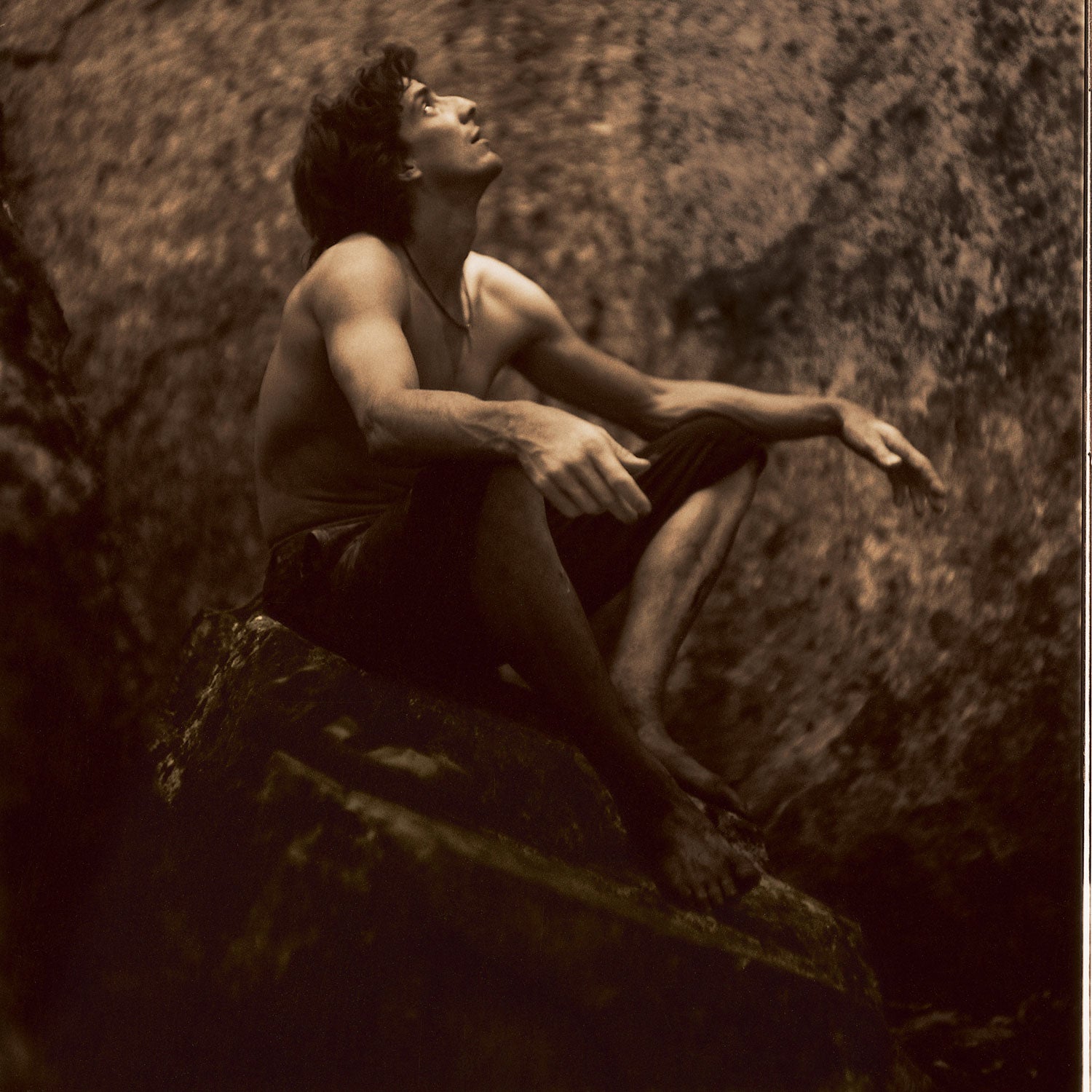In the spring of 2014, after a season in which upwards of 25 wingsuit flyers died in various incidents in the Alps, Dean Potter talked with ���ϳԹ��� contributing editor Florence Williams about fear, risk, and safety. Potter’s words are the expression of a man trying to engineer security within an activity that virtually precludes it. It’s in that dangerous gray area where he lived much of his life—and felt most alive.
On feeling fear:
Many people think I don’t feel fear, but I do. Fear is worthwhile because it pushes me into these higher states of consciousness where I perceive more. It makes me more awake, and I can stay calm. This switch into mental states that I normally can’t access allows me to do scary things.
On safety:
Last year [in 2013], more than 25 people died wingsuit flying in same region I was in [the Alps], which was quite a huge die-off for wingsuiters—like 5 percent of the worldwide total. It made me stop for about a month and a half, take a pause, calculate, and come to grips with my thoughts: Is this really safe? If I survived 1,000 out of 1,000 times, is that because of safety, or just did I get lucky?
I went back to flying prematurely, for sure. I was uncomfortable, for sure. I didn’t enjoy it; I felt sick physically. Then the good vibe came back, my batteries were recharged, my friends were around. The three or four guys I jump with, we didn’t understand how people were dying doing this. Flying 150 mph next to a wall is exciting enough; you don’t need to make it more badass.
I stay well within my abilities and never go to those places that are too harsh to handle. If you scare yourself too badly, that could set you back years. I remember getting really afraid back in the late ’90s when several friends died and I had a close call and was pushing too aggressively. There’s a major lesson there about listening to yourself: Pushing too hard is a step back. You might quit, or you won’t leap ahead like you’d like. For me on a project, if I don’t feel it, I can’t do it. It’s horrible to force it.
On approaching the edge:
While walking up to the cliff, I’m preparing myself, trying to breathe and stay calm. You visualize; you work out the jump in your head first. The more prepared you are, the better—the more visualization, the better. Sometimes I draw it out, write it down. I’m very visual. I draw pictures and form images in my mind.
I used to struggle with heights. I can even remember being frustrated, breaking down, and crying—it was too overwhelming. Especially with BASE jumping, where falling means death. But through doing it over and over again, you become more comfortable. Now I can calmly breathe while I fly through air and feel comfortable. I can feel my heart rate. I’m able to be in the moment.
Maybe at first, if I haven’t jumped in a while and I’m standing on the edge, I’ll have a racing heart and be nervous. But you can’t be nervous and rigid and do your art at a high level. Like life in general, with any of these extreme things, you can’t be at your highest state if you’re nervous. Controlling that is part rational, part necessity. You better relax or you’ll go out of control and mess up. The whole art is about staying calm.
On practicing fear management:
I’m very much into Japanese culture. I study and read a lot about Miyamoto Musashi, a samurai and Zen Buddhist from the 1600s. He talks about striking with no thought, which I find important. When he’s in battle, he realizes he’s reading his opponent’s mind. He was way into connecting on that level—through body language and senses [beyond the five basic ones]. When fighting someone else, he couldn’t win unless he entered the highest form without conscious thought.
So when I climb, I don’t think, “I’m going to grab this climbing bolt.” I just do it. To get to the level of “no thought,” you have to ingrain it into yourself. It can’t be done except through regimentation. Consistency is key. If I don’t climb or jump or walk lines or fly for a few weeks or even a few days, I lose confidence. The way I get it back is by practicing my art daily, making it my lifestyle.
Is this really safe? If I survived 1,000 out of 1,000 times, is that because of safety, or just did I get lucky?
On meditation:
Anytime I’m having difficulty, I focus on the breath, on relaxed breathing. I’m not so good at sitting on floor and meditating—I struggle with patience. I use those skills way better when I’m moving.
My mother was a yoga teacher before I was born and practiced her whole life. When I was toddler, I observed her doing yoga and meditation. My two sisters and I would mimic her, and she wouldn’t push us. I could hear a difference in her breathing. Kids are tuned into the emotions of adults, even if you don’t quite understand all the lingo.
Then, during late ’90s, I climbed a lot with Jose Pereyra. Jose was very structured about his meditating. Maintaining that heightened state was a lifestyle for him, whereas the way I did it was more of a fix or useful for climbing. Jose was the first person who showed me that it was a life pursuit. He passed away in 2003 [during a climbing fall in Potrero Chico, Mexico]. Still, his influence has been very strong for me. I am mindful of calming myself by moving and breathing.
On getting older:
Fear is not linear like age is. I have cycles when I’m more adventuresome and ones when I’m more conservative. As I’ve gotten older, I have realized that just because I can do something doesn’t mean I should do it. Now I think, is this really true to what I want to do, to how I want to use my one chance at living? I am more precise with my actions.


